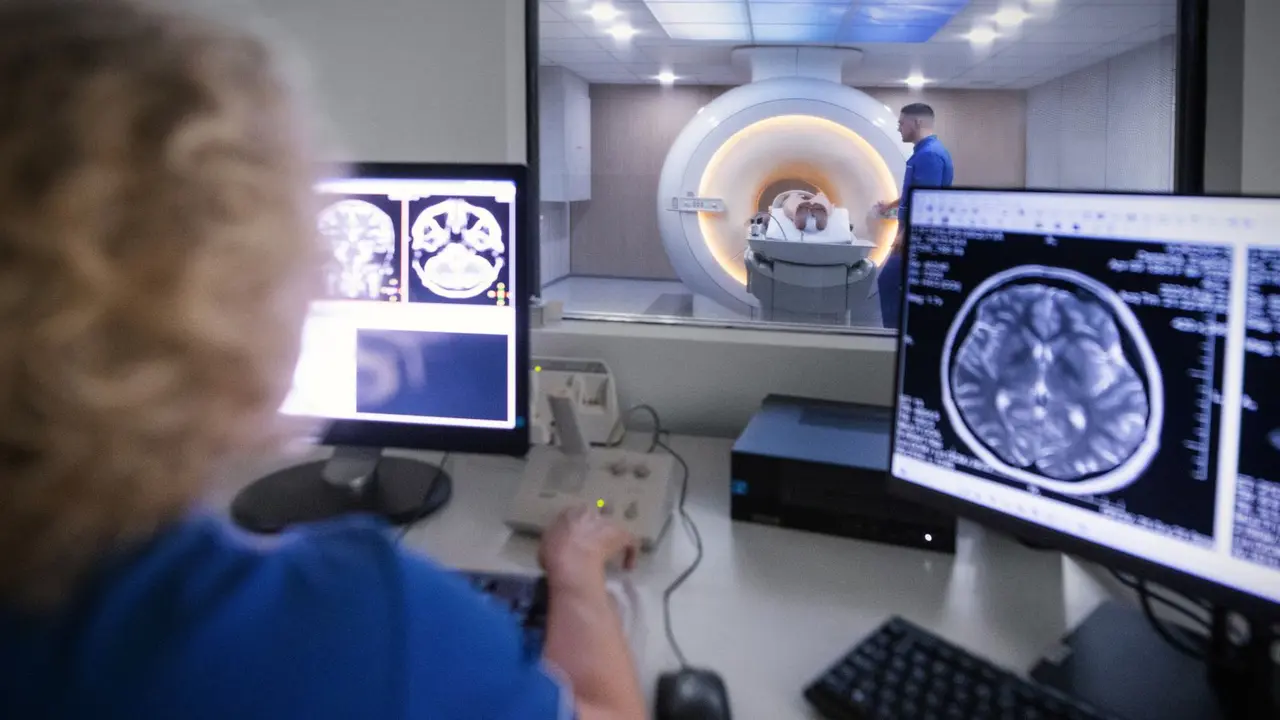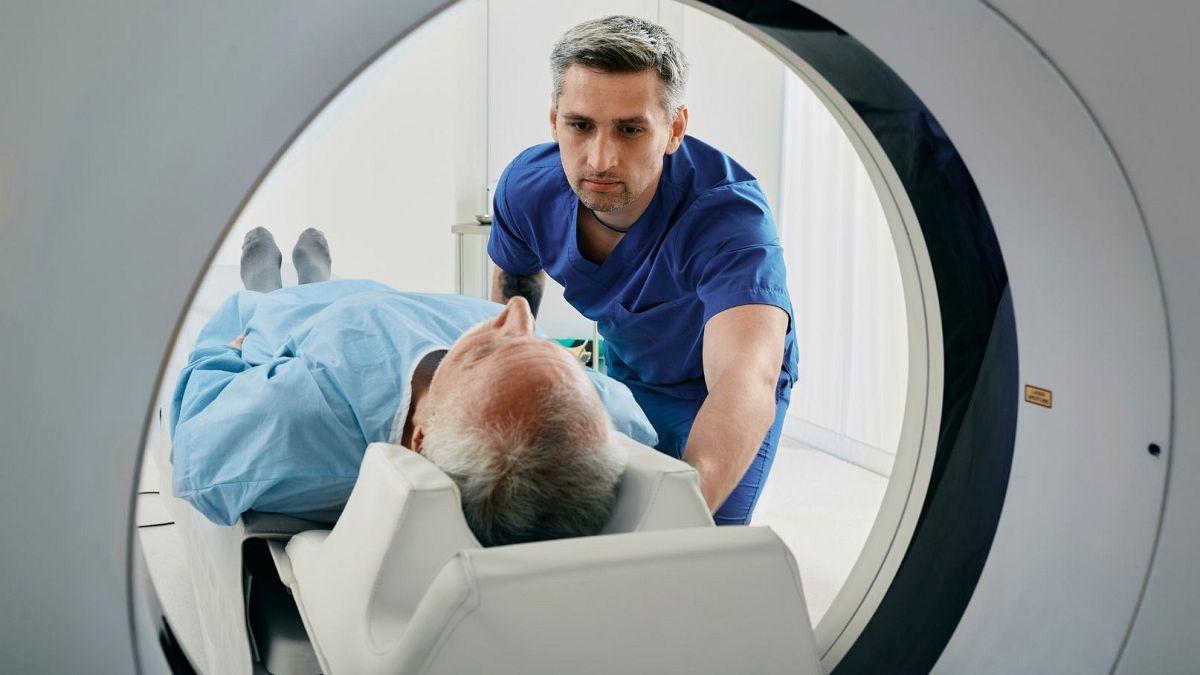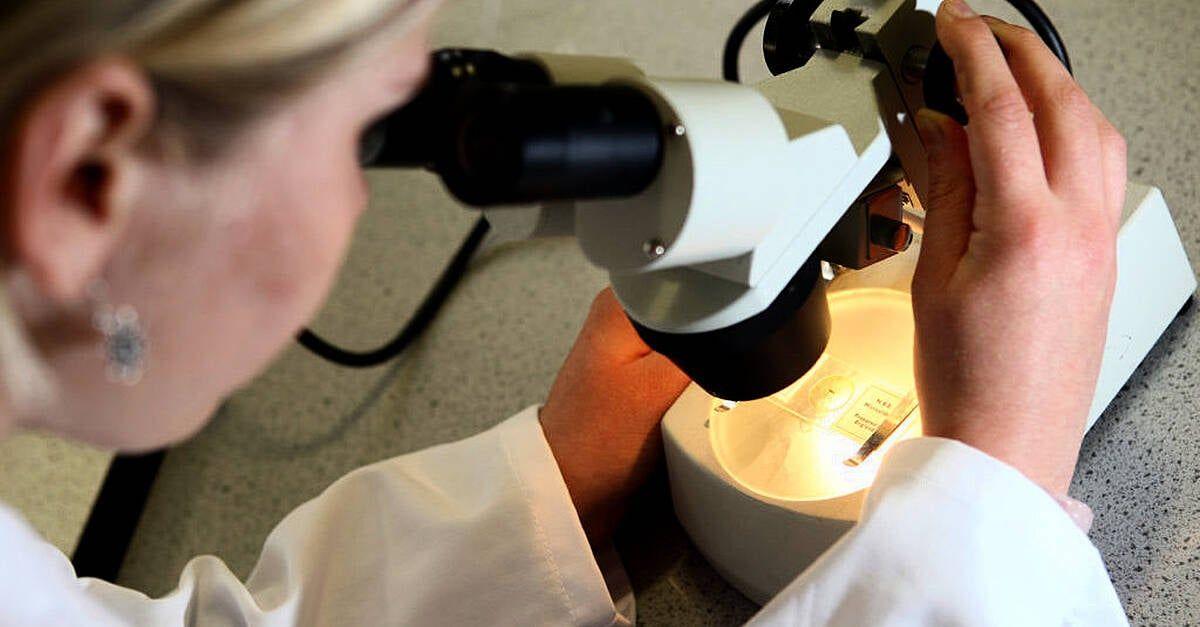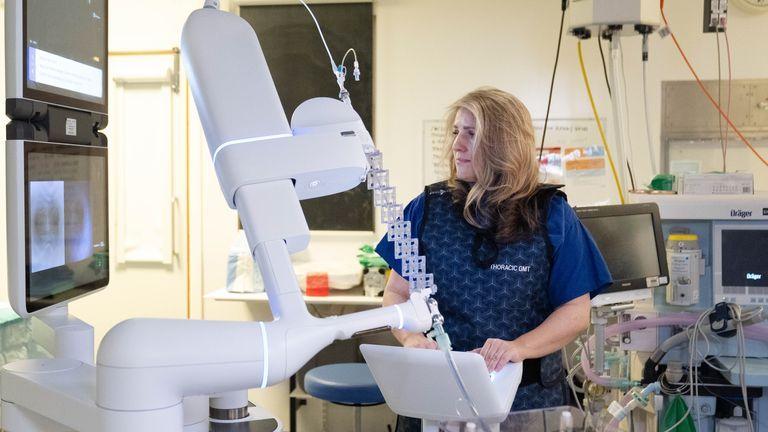NHS Trials AI-Powered Same-Day Prostate Cancer Diagnosis
4 Sources
4 Sources
[1]
NHS to offer same-day prostate cancer diagnosis
Men with suspected prostate cancer will be able to get a diagnosis from the NHS within a day, under a new trial hailed as a potential "game changer" for identifying and treating the disease. The 15 hospitals taking part will use AI technology to interpret MRI scans and spot areas of abnormal tissue within minutes, according to NHS England. Scans showing a high-cancer risk will be triaged as priority review for a radiologist and patients will be booked for a same-day biopsy. Around one in eight men will develop prostate cancer in their lives, according to Prostate Cancer UK, with research showing it has overtaken breast cancer as the most commonly diagnosed form of the disease in the UK. But unlike breast cancer, there is currently no national screening programme for prostate cancer. Under current best-practice guidelines, men should receive an MRI and biopsy within a week of urgent GP referral - but waits can be longer depending on radiologist capacity. Data released earlier this month showed that NHS waiting lists have risen for three consecutive months. Health Secretary Wes Streeting said the trial would cut "needlessly distressing" wait times and improve outcomes for patients. "By harnessing the power of technology we are revolutionising our NHS," he said. The AI software, called Pi, has been developed by Lucida Medical and promoted for its speed and efficiency. "MRI in the morning, biopsy in the afternoon," Dr Oliver Hulson wrote on the developer's website. According to the National Prostate Cancer Audit, 58,218 men were diagnosed with prostate cancer in England in 2024 - with a rise of more than 5000 diagnoses from the year prior. Professor Peter Johnson, national clinical director for cancer at the NHS, said he hoped the technology could be a "game changer and help save men weeks of worry and uncertainty". Amy Rylance, assistant director of health improvement at Prostate Cancer UK, said Pi could save men the "prolonged anxiety and the bother of hospital trips, while also increasing capacity for our hard-working NHS workforce". The announcement of the trial precedes the release of the government's National Cancer Plan, expected later this year.
[2]
Could this AI tool detect prostate cancer in 24 hours?
The new approach could save men from weeks of waiting for a diagnosis, NHS England said. England is testing a new artificial intelligence (AI) tool to speed prostate cancer diagnoses, which may save men from weeks of uncertainty about their health. The tool, which will be piloted through the National Health Service (NHS) in England, uses AI to interpret medical imaging scans and identify lesions in men with suspected prostate cancer. If the AI tool determines that a scan is high risk, it will be immediately sent to a radiologist for priority review. Patients will be booked for biopsies the same day, enabling doctors to quickly determine if a patient is cancer-free or make a diagnosis a few days later. The new approach could save these patients up to a month of waiting for a diagnosis, NHS England said. Under the current protocol, patients suspected of having prostate cancer are supposed to undergo a medical scan and biopsy within a week of their primary care doctor referring them for testing. But with radiologists under pressure, it can take much longer. Notably, early screenings, such as PSA blood tests, can have abnormal results even if the patient does not actually have prostate cancer. That means some men without cancer may be sent for further testing and then wait weeks for an answer, which could take a toll on their mental health. NHS England said that if the trial is successful, the AI tool will be rolled out across the health system, which could lead to thousands of men being diagnosed and treated for prostate cancer sooner. "As with all cancers, speed is crucial - the quicker the diagnosis, the sooner treatment can begin and help give the best chance of treatment being successful for patients and their families," Peter Johnson, the NHS's national clinical director for cancer, said in a statement. The tool will be used in 10,000 scans to help radiologists identify cancers. It is part of a £14 million (€16 million) project in the United Kingdom to detect cancers at earlier stages. Prostate cancer is one of the most common types of cancer for men, with more than 56,000 new cases diagnosed in England each year, NHS England said. In the European Union, there are more than 335,000 new cases annually and about one in 11 men will develop prostate cancer over their lives.
[3]
NHS to offer same-day prostate cancer diagnosis - with AI tool used to analyse results
Figures from Prostate Cancer UK suggest about one in eight men will have this disease in their lifetime. A total of 58,218 men were diagnosed in England last year - an increase of almost 9% compared with 2023. Men with suspected prostate cancer will be able to get an NHS diagnosis within a day as part of a new trial. Artificial intelligence will be used to interpret MRI scans, meaning problematic legions can be detected in a matter of minutes. Should a scan conclude there is a high risk of cancer, it will be sent to a radiologist for priority review - with the patient booked in for a biopsy that same day. NHS England says the technology will be trialled at up to 15 hospitals to begin with, and this approach could save men months of waiting. At present, men with suspected prostate cancer are meant to receive an MRI and a biopsy within a week of being referred by their GP. However, waiting times can be longer depending on the capacity of radiologists. Tech 'revolutionising' NHS Health Secretary Wes Streeting said prostate cancer is a "devastating disease" - and long waits for test results, diagnosis, and treatment are "needlessly distressing" for patients. "By harnessing the power of technology we are revolutionising our NHS and tackling this, with AI able to deliver same-day prostate diagnoses, delivering better outcomes for patients and fast support for doctors," he added. NHS England's national clinical director for cancer, Professor Peter Johnson, said the health service is "really excited by the potential of artificial intelligence". He explained: "As with all cancers, speed is crucial - the quicker the diagnosis, the sooner treatment can begin and help give the best chance of treatment being successful for patients and their families." Figures from Prostate Cancer UK suggest about one in eight men will have this disease in their lifetime. A total of 58,218 men were diagnosed with prostate cancer in England last year - an increase of almost 9% compared with 2023. Earlier this year, former Sky News presenter Dermot Murnaghan revealed he had been diagnosed with stage four prostate cancer - and urged men to insist on getting tested if they are in a high-risk group. Meanwhile, rugby legend Sir Ian McGeechan has called on the government to introduce a national screening programme. Amy Rylance from Prostate Cancer UK said: "The AI tool could represent a further step change, saving men prolonged anxiety and the bother of hospital trips, while also increasing capacity for our hard-working NHS workforce."
[4]
Same-day prostate cancer diagnosis using AI is 'game-changer" | BreakingNews
Artificial intelligence will be used to interpret MRI scans for men suspected of having the disease, helping to spot lesions within minutes. If the software finds a scan deemed to have a high risk of cancer, it will be sent to a radiologist for priority review and the patient will be booked in for a biopsy the same day. By harnessing the power of technology we are revolutionising our NHS and tackling this... delivering better outcomes for patients and fast support for doctors Specialists will review results, with patients able to get the all-clear the same day or a diagnosis within a few days, saving men months of waiting. The technology will be trialled at up to 15 hospitals, NHS England said. Under current best practice guidelines, patients with suspected prostate cancer should receive an MRI and biopsy within a week of an urgent GP referral, but waits can be longer depending on the capacity of radiologists. UK Health Secretary Wes Streeting said: "Prostate cancer is a devastating disease impacting thousands of men every year - and what makes this already incredibly challenging situation worse for these men are long waits for test results, diagnosis and treatment - it's needlessly distressing for them and their families. "By harnessing the power of technology we are revolutionising our NHS and tackling this, with AI able to deliver same-day prostate diagnoses, delivering better outcomes for patients and fast support for doctors." Professor Peter Johnson, national clinical director for cancer at NHS England, said: "We're really excited by the potential of artificial intelligence to speed up cancer diagnosis, and we hope this trial of an AI-powered 'one-day diagnostics' could be a game changer and help save men weeks of worry and uncertainty. "As with all cancers, speed is crucial - the quicker the diagnosis, the sooner treatment can begin and help give the best chance of treatment being successful for patients and their families." The AI tool could represent a further step change, saving men prolonged anxiety and the bother of hospital trips, while also increasing capacity for our hard-working NHS workforce Prostate cancer is the most common cancer in males and about one in eight men will have it in their lifetime, according to Prostate Cancer UK. Some 58,218 men were diagnosed with prostate cancer in England in 2024, up from 53,462 the year before, according to the National Prostate Cancer Audit (NPCA). The new AI tool, Pi, has been developed by Lucida Medical and comes ahead of the Government's National Cancer Plan which is expected to be published later this year.
Share
Share
Copy Link
The NHS in England is piloting an innovative AI tool to accelerate prostate cancer diagnosis, potentially offering same-day results. This technology aims to reduce waiting times and improve patient outcomes in the fight against one of the most common cancers in men.
NHS Introduces AI-Powered Prostate Cancer Diagnosis Trial
The National Health Service (NHS) in England is set to revolutionize prostate cancer diagnosis with a groundbreaking trial of artificial intelligence (AI) technology. This innovative approach aims to provide same-day diagnoses for men with suspected prostate cancer, potentially saving weeks of anxiety and uncertainty
1
2
.The AI Tool: Pi
The trial will utilize an AI software called Pi, developed by Lucida Medical. This cutting-edge technology is designed to interpret MRI scans and identify areas of abnormal tissue within minutes
1
4
. If the AI detects a high risk of cancer, the scan is immediately prioritized for review by a radiologist, and the patient is scheduled for a same-day biopsy2
.
Source: Sky News
Trial Scope and Potential Impact
The trial will be conducted in up to 15 hospitals across England, with the AI tool being used to analyze approximately 10,000 scans
2
3
. If successful, this approach could significantly reduce diagnosis times from weeks to a single day, potentially benefiting thousands of men across the country1
2
.
Source: Euronews
Current Diagnosis Process and Challenges
Under current best-practice guidelines, men with suspected prostate cancer should receive an MRI and biopsy within a week of an urgent GP referral. However, due to limited radiologist capacity, waiting times can often be longer
1
3
. This delay can cause significant anxiety for patients and potentially impact treatment outcomes.
Source: BreakingNews.ie
Related Stories
Prostate Cancer Statistics
Prostate cancer is the most common cancer among men in the UK. According to Prostate Cancer UK, about one in eight men will develop the disease in their lifetime
1
3
. In England alone, 58,218 men were diagnosed with prostate cancer in 2024, marking an increase of almost 9% compared to the previous year3
4
.Expert Opinions and Future Prospects
Health Secretary Wes Streeting hailed the trial as a way of "revolutionising our NHS" by harnessing the power of technology
1
3
. Professor Peter Johnson, national clinical director for cancer at NHS England, described the potential of this AI tool as a "game changer" in speeding up cancer diagnosis1
4
.The trial precedes the release of the UK government's National Cancer Plan, expected later this year, signaling a broader commitment to improving cancer diagnosis and treatment through innovative technologies
1
4
.References
Summarized by
Navi
[4]
Related Stories
Recent Highlights
1
ByteDance's Seedance 2.0 AI video generator triggers copyright infringement battle with Hollywood
Policy and Regulation

2
Demis Hassabis predicts AGI in 5-8 years, sees new golden era transforming medicine and science
Technology

3
Nvidia and Meta forge massive chip deal as computing power demands reshape AI infrastructure
Technology








